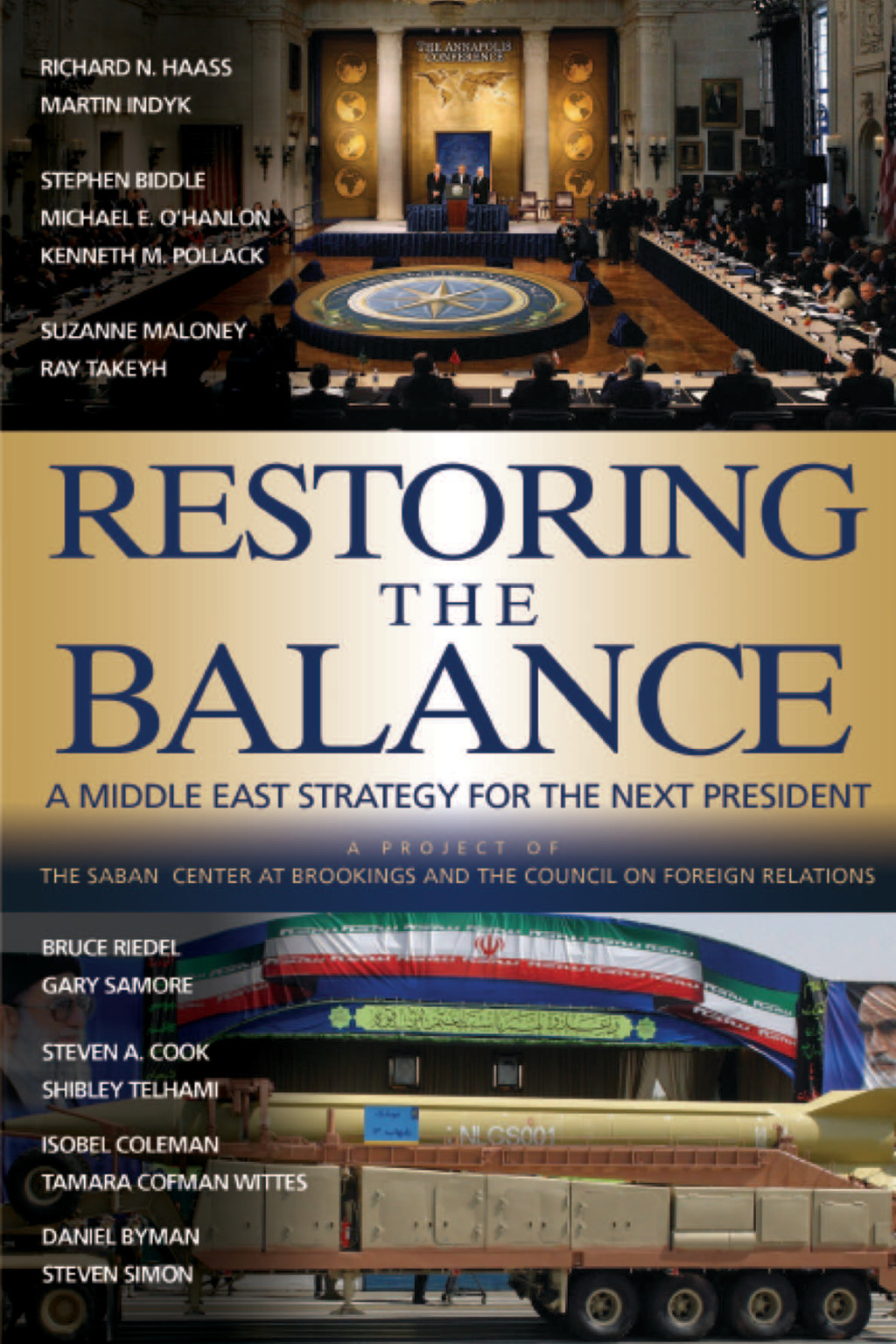Restoring the Balance
A Middle East Strategy for the Next President

- Publisher
- A CFR–Saban Center at Brookings Book
- Release Date
- November 2008
- Pages
- 256
- ISBN
- 978-0-8157-3869-5
The next U.S. president will need to pursue a new strategic framework for advancing American interests in the Middle East. The mounting challenges include sectarian conflict in Iraq, Iran’s pursuit of nuclear capabilities, failing Palestinian and Lebanese governments, a dormant peace process, and the ongoing war against terror. Compounding these challenges is a growing hostility toward U.S. involvement in the Middle East. The old policy paradigms, whether President George W. Bush’s model of regime change and democratization or President Bill Clinton’s model of peacemaking and containment, will no longer suit the likely circumstances confronting the next administration in the Middle East.
In Restoring the Balance: A Middle East Strategy for the Next President, experts from the Council on Foreign Relations and the Saban Center at the Brookings Institution propose a new, nonpartisan strategy drawing on the lessons of past failures to address both the short-term and long-term challenges to U.S. interests. Following an overview chapter by Richard N. Haass, president of the Council on Foreign Relations, and Martin Indyk, director of the Saban Center, individual chapters address the Arab-Israeli conflict, counterterrorism, Iran, Iraq, political and economic development, and nuclear proliferation. Specific policy recommendations stem from in-depth research and extensive dialogue with individuals in government, media, academia, and the private sector throughout the region.
Restoring the Balance is the final product of an eighteen-month Council on Foreign Relations–Saban Center at Brookings project. This effort involved fifteen of the institutions‘ senior Middle East experts, who joined together for the first time to conduct in-depth research, travel to the region, and hold interviews with its leaders in order to develop a series of policy recommendations for President-elect Barack Obama. The teams met on three occasions with a board of advisers, a group of former government officials and leaders in the public and private sectors who critiqued drafts of the papers but were not asked to endorse the views presented.
A Council on Foreign Relations Book
Reviews and Endorsements
[Restoring the Balance] ... is no mere straw in the wind: It spells out in considerable detail what the Obama administration’s strategy and priorities for Iran and the Israeli-Arab peace process are going to be.
Washington Times
Among the plethora of proposals ... Barack Obama is being offered from unofficial sources in this transition period, chances are that ... Restoring the Balance will command a prominent place.
Jerusalem Post
Thoughtful ... a very useful and readable introduction to the thinking behind the coming shift.
New York Times Book Review